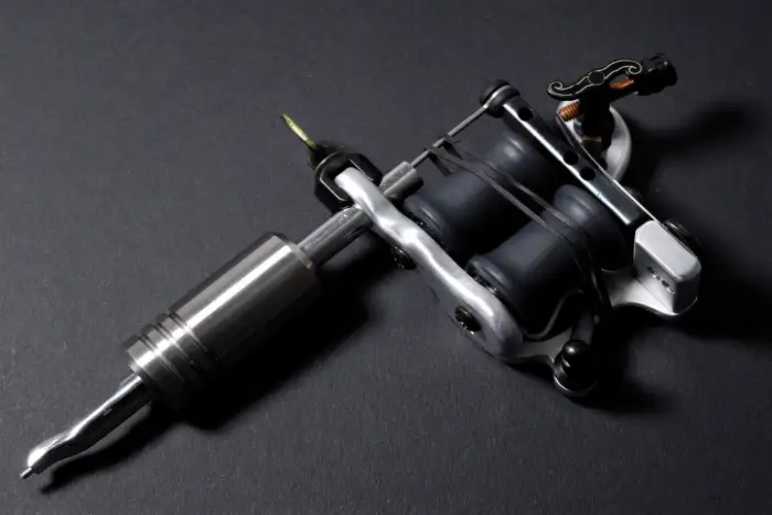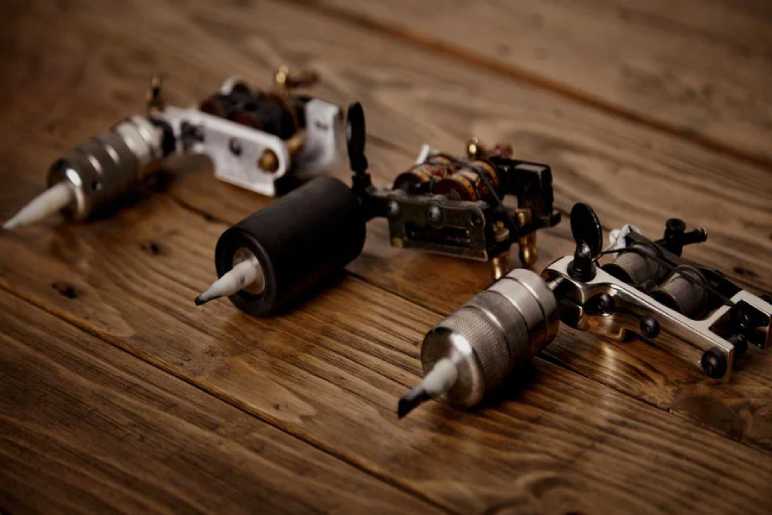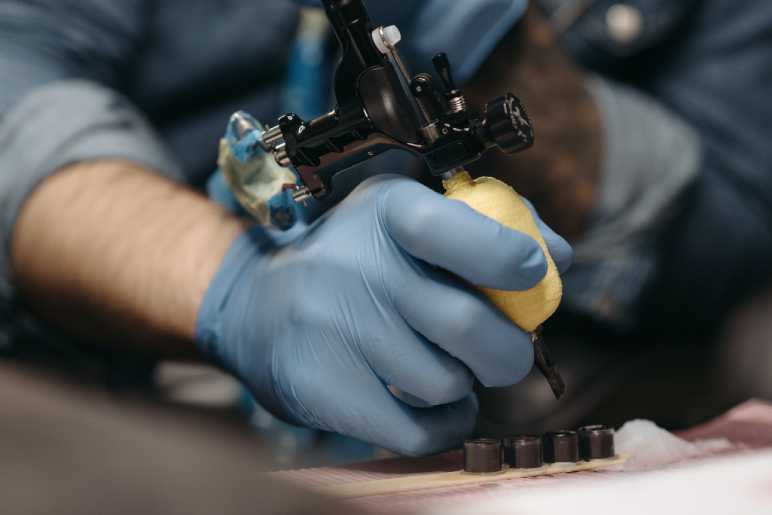When it comes to tattooing, the tattoo machine is the heart of the craft. Tattoo machines have come a long way, evolving from simple devices into sophisticated tools that enable artists to create intricate, beautiful designs on skin. Whether you’re an aspiring tattoo artist or simply curious, understanding the tattoo machine’s role, mechanics, and variations is essential.
In this guide, we’ll cover everything you need to know about tattoo machines, including their history, types, essential features, and tips for choosing the best one.
1. A Brief History of Tattoo Machines

Image Source :- https://tinyurl.com/48f6px2w
Tattooing has been an art form for thousands of years, with ancient tools and methods used to apply ink to skin. The modern tattoo machine, however, was invented relatively recently. Thomas Edison’s invention of the electric pen in 1876 was a precursor to today’s machines. Edison’s device, initially designed for duplicating documents, later inspired Samuel O’Reilly, who modified it to create the first electric tattoo machine in 1891.
Since then, tattoo machines have gone through several evolutions, with technological advancements making them more efficient, precise, and customizable for tattoo artists. Today, professional-grade tattoo machines are designed to offer precision, comfort, and control, allowing artists to push the boundaries of tattooing.
2. Types of Tattoo Machines

Image Source :- https://tinyurl.com/988vyttc
There are several types of tattoo machines available, each serving a specific purpose in the tattooing process. Understanding these types will help artists choose the right machine for their style and needs.
a. Coil Tattoo Machine
The coil tattoo machine is perhaps the most popular type among traditional tattoo artists. It uses electromagnetic coils to drive the tattoo needle up and down, creating a characteristic buzzing sound. Coil machines offer flexibility and control over needle speed and depth, making them suitable for both lining and shading.
- Pros: Versatile and highly customizable
- Cons: Heavier and can cause more fatigue for artists over long sessions
b. Rotary Tattoo Machine
The rotary tattoo machine operates using a rotating motor, which makes it quieter and generally lighter than the coil machine. Rotary machines are ideal for smoother, continuous lines and are favored by many artists for shading and coloring.
- Pros: Lightweight and quieter; versatile for different tattooing styles
- Cons: Limited in power compared to coil machines for some applications
c. Pneumatic Tattoo Machine
Less common than coil and rotary machines, pneumatic machines use air pressure to move the needle. These machines are light, quiet, and can be sterilized fully, which is a significant advantage in terms of hygiene.
- Pros: Lightweight, quiet, and easy to sterilize
- Cons: Requires a compressed air supply, which can be costly and cumbersome to maintain
d. Cartridge Pen Tattoo Machine
Cartridge pen tattoo machines have become increasingly popular in recent years. These devices use disposable needle cartridges, which simplify the process of switching between needle configurations and improve hygiene standards.
- Pros: Convenient, easy to use, and hygienic with disposable cartridges
- Cons: Cartridge systems can be expensive over time
3. Components of a Tattoo Machine

Image Source :- https://tinyurl.com/5483hjy7
Tattoo machines consist of several components that work together to make precise, accurate tattooing possible. Here’s a breakdown of the key parts:
- Frame: Provides the foundation and structure for the machine. Made from durable materials such as steel or aluminum.
- Coils: Found in coil machines, these power the movement of the armature bar, which in turn drives the needle.
- Armature Bar: A metal bar that moves up and down to push the needle into the skin.
- Spring: Helps control the tension and movement of the armature bar.
- Needles: Different needle configurations are used for lining, shading, and coloring.
- Power Supply: Provides the necessary electricity to the machine, allowing artists to adjust speed and voltage.
4. Key Features to Look for in a Tattoo Machine
Whether you’re a beginner or a seasoned tattoo artist, certain features can significantly impact your
1414and the quality of your work. Here’s what to consider when selecting a tattoo machine:
- Weight: A lighter machine reduces hand fatigue, which is important for long tattoo sessions.
- Adjustability: Machines with adjustable settings allow for better control over speed, depth, and pressure.
- Material Quality: Choose a machine with a durable frame and high-quality components for longevity and performance.
- Compatibility with Needles: Ensure the machine is compatible with different types of needles or cartridges, depending on your preferred tattooing style.
5. Tattoo Machine Maintenance Tips
Taking good care of your tattoo machine not only extends its lifespan but also ensures a better experience for both you and your clients. Here are some maintenance tips to keep in mind:
- Regular Cleaning: Tattoo machines should be cleaned and disinfected after every use to maintain hygiene and prevent cross-contamination.
- Lubrication: Lubricate moving parts as needed to keep the machine running smoothly and to prevent excessive wear.
- Needle Replacement: Use new, sterilized needles for each client, as using old or unsterilized needles can lead to infections and compromised tattoo quality.
- Check for Wear and Tear: Regularly inspect components like springs, coils, and the armature bar for signs of wear, and replace them as necessary.
6. Choosing the Right Tattoo Machine
Selecting the right tattoo machine can be overwhelming due to the variety of options available. When making your choice, consider factors like your tattooing style, comfort, and skill level. For beginners, a versatile, user-friendly machine like a rotary or cartridge pen machine may be ideal. Experienced artists may prefer the traditional coil machine for the customization and control it offers.
If you’re searching for quality tattoo services and want to see these machines in action, Inkredible Tattoo is a great place to explore. With expert artists who use top-quality equipment, Inkredible Tattoo provides a clean, professional experience for clients looking for unique, high-quality tattoos.
7. Safety and Hygiene in Tattooing
Safety and hygiene are crucial in tattooing, and your tattoo machine plays a significant role. Disposable needles and grips, sterilization, and regular maintenance are essential for a safe tattooing environment. Always ensure your tattoo machine is fully sterilized before each use, and wear gloves to avoid cross-contamination.
Clients should also be aware of these practices and ensure they are visiting a reputable studio that adheres to strict hygiene standards. Inkredible Tattoo, for instance, prioritizes safety, using only sterilized tools and high-quality equipment to provide a safe and enjoyable tattoo experience.
8. Final Thoughts on Tattoo Machines
Tattoo machines are essential tools that define the quality and style of tattooing. As an artist, knowing your machine’s intricacies, including the type and functionality, can help elevate your craft. Whether you’re doing fine-line work or bold color shading, the right machine makes all the difference.
If you’re interested in exploring high-quality tattoos and witnessing the latest tattoo machine technology in action, check out Inkredible Tattoo. Their skilled artists work with precision, hygiene, and artistry in mind, ensuring every tattoo is a masterpiece.
Tattoo machines are the bridge between an artist’s vision and a client’s skin, making them one of the most important aspects of tattooing. Understanding the history, types, and mechanics of tattoo machines helps both artists and enthusiasts appreciate the craft on a deeper level. So whether you’re a budding artist, an enthusiast, or someone looking to get your first tattoo, remember that every great tattoo starts with a great machine.
Have A Look :-
